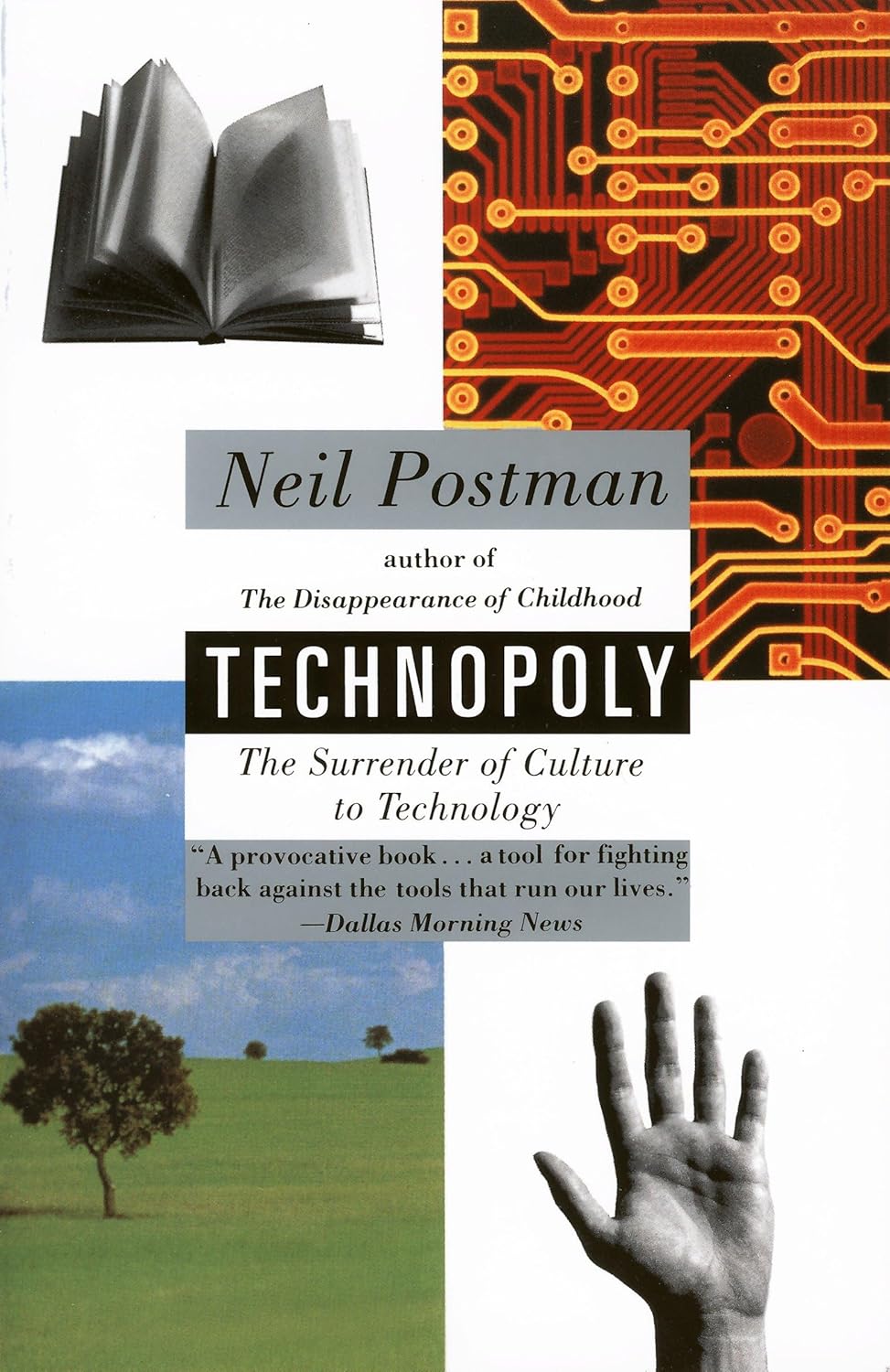Technopoly (1992)

In Technopoly, Neil Postman argues that modern societies have moved beyond being merely tool-using or technocratic; many have become technopolies—cultures that grant technology the authority to define meaning, solve problems, and set the terms of public life. When technique and measurement become ultimate judges of truth, older sources of wisdom—tradition, ethics, religion, human judgment—are displaced or reduced to data points.
Postman explores how this surrender reshapes institutions: schools teach to the test and to the machine; medicine prioritizes metrics over care; journalism prizes speed and novelty over context; politics becomes a contest of optics and polling. Technopoly asks not for technophobia, but for technological modesty: the cultural capacity to question which problems technology can actually solve—and which human goods it might erode.
“Technological change is not additive; it is ecological. A new technology does not merely add something; it changes everything.”
Key Ideas from the Book
- From Tools to Technopoly: Tools once served culture; in a technopoly, culture serves the needs and logic of technology.
- Information Glut: More data does not equal more meaning. Without narrative and judgment, information becomes noise.
- Metrics as Morality: What can be counted is confused with what counts—efficiency replaces purpose.
- De-skilling of Judgment: Expertise and human discretion yield to algorithms, checklists, and dashboards.
- Cultural Defenses: Education should teach the history and biases of technologies, cultivating critical distance.
Why It Still Matters
Written before smartphones and social media, Technopoly anticipated a world of dashboards, rankings, and growth-at-all-costs metrics. Postman’s question—What problem is this technology the solution to?—remains a reliable compass for educators, designers, policymakers, and everyday users navigating AI-driven systems and data-centric institutions.